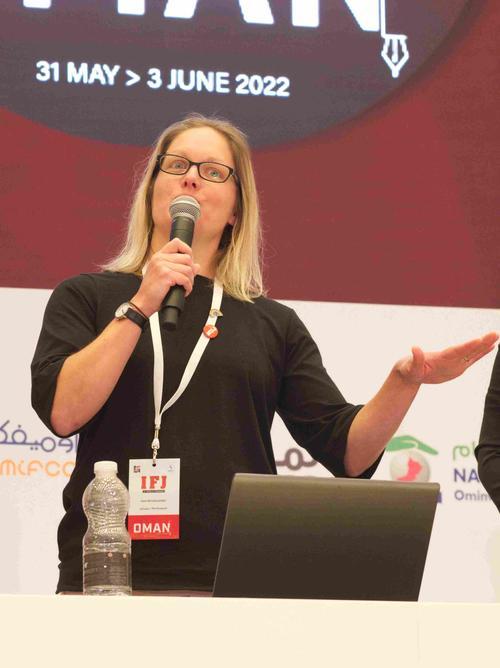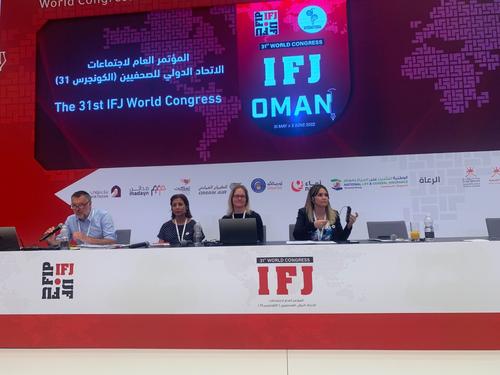International lessons for union organisers
Tim Dawson reports on the 31st International Federation of Journalists congress in Oman.
A cheer went up from delegates to the IFJ’s congress when NUJ delegate Sian Jones explained the ramifications of Samira Ahmed’s equal pay victory. “It was a fantastic result in itself, but it also led to £8m worth of further equal-pay settlements for NUJ members”.
The former NUJ president was speaking on a panel that was sharing lessons from workplace victories at the International Federation of Journalists 31st congress, in Muscat, Oman.
Women delegates followed Jones’ call to stand up to identify themselves. She then warned them that such was the gender pay gap in the UK, that they would be expected to work unpaid from the start of each year until 25 February, unlike male colleagues who earn from 1 January.
Jon Schleuss from The News Guild/CWA, USA, had earlier explained how his union had increased its membership by a third over seven years, and achieved recognition agreements in scores of new workplaces, including the Los Angeles Times, Buzzfeed, The New York Times, and the Dallas Morning News. He has web published his organising templates in the interests of ‘open source trades unionism’.
The News Guild’s striking success has had ramifications beyond news workplaces, Schleuss reported. As reporters have learned about unions from their own experience, so coverage of union campaigns in other industries had become more sympathetic.
Emira Mohamed from the SNJT (Tunisia) described the enormously impressive program undertaken by her union. This includes a framework agreement agreed with some of her countries major media employers and is now being extended elsewhere in the industry. The union is also providing skills training for members, including tactics to avoid revealing sources. In one case, a member was arrested and detained for seven days in an attempt uncover their sources. That they were able to resist was credited to the union’s training.

NUJ delegate Sian Jones.
© Tim Dawson

Delegates at IFJ congress.
